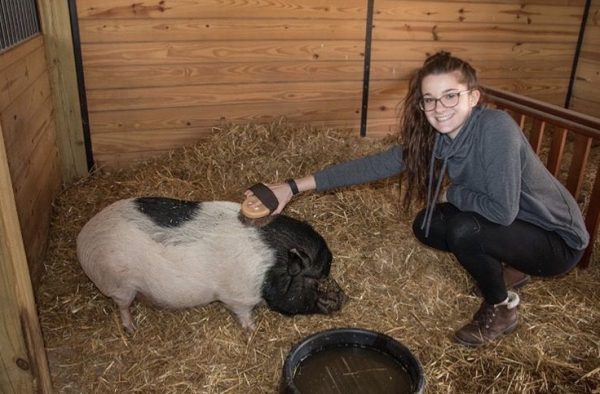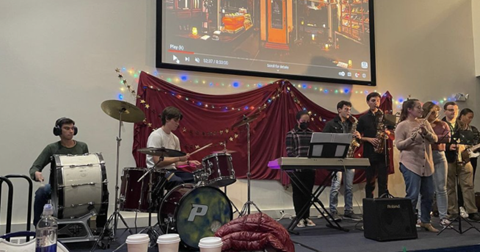International student struggles with time zone changes amid virtual learning
As the semester goes online, she is forced to transition to the NY time zone from Barcelona
contributed by Joana Krause Massaguer
Joana Krause Massaguer went back to her hometown in Spain after Pace switched to virtual learning.
March 31, 2020
In a town next to Barcelona, Pace junior, Joana Krause Massaguer, tries to adapt to online classes from afar . Krause, a biochemistry major and student-athlete, is one of the many Pace international students who have left the U.S. after Pace announced that there will no longer be in-class meetings this semester as the world has focused on controlling the Coronavirus outbreak.
Pace’s remote-learning announcement created questions among students as the system has never been tested before. But for some international students, the situation is more complex. They turn on their computers despite their local time being far different than the Pace class times.
“The time difference is constantly confusing me,” Krause said, explaining her first remote learning experiences at a different time zone. “I have quizzes every week and I a

As Pace announces that the semester will be completed online, students in different countries and states will have to adjust two different time zones.
lways need to remember that I have to take it at 3:40 p.m., not at 10:40 a.m.”
In addition to having to complete the semester online, these students must adjust their schedules so that their program operates like clockwork.
“The biggest challenge has been to maintain a routine,” Krause said. “Because most of my professors are posting videos that we can watch whenever you want/can.”
Yet, she is still aware that her assignments are due by New York local time. Krause has to check Eastern time because Barcelona is five hours ahead of New York. Additionally, Spain switched to daylight savings time last Sunday and now the difference has gone up to six hours. Nonetheless, she is hopeful that students will adjust quickly.
“I think that once we get used to this new situation it will get better, ” Krause said. “I will have to learn how to be organized and consistent in my studying so that I am not behind.”
Being a biochemistry major, Krause had been in a lab for three different courses this semester. As a curriculum requirement, she was supposed to take part in lab experiments but since the semester is online, students like Krause can not observe scientific experiments in person.
“It is hard to understand what is happening when you read the results of an experiment if you have not performed it yourself,” Krause said.
Krause also had a campus job at Pace Learning Assistant Center as a science tutor. While in the Catalan capital, she has managed to keep her position and help Pace students. Her assistance has already become a part of her daily schedule, but due to the time difference, her shift sometimes end later than it did in Pleasantville.
“…Two days a week I finish my shift at 12 a.m.,” Krause said. “But I don’t mind it that much because I am grateful for still having a job.”
Computers are students’ only resources to successfully complete the semester, but this makes Krause feel like she has more work than before.
“The amount of time that I am on my computer has increased drastically, which I believe makes me feel like I do more work now, only because being in class did not feel like studying or doing homework,” Krause said.
For some courses, following lectures on Zoom or a video recording would be sufficient to complete the syllabus. However, Krause feels that it is not easy to participate in science and math classes as they are constantly “doing problems and asking questions, which is now not possible if you are watching a video or way more confusing if the class is held on zoom.”
The coronavirus outbreak continues to put the world on lock down. Since Pace first announced that classes were moving online for a week, more countries and states have imposed curfews, banned public gatherings and announced shelter-in-place orders. But, Krause remains optimistic.
“I am not complaining because everyone is doing their best right now,” Krause said. “Everyone in my family is healthy and that is what matters the most right now.”














